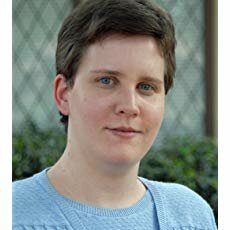Sandra Haven is a professional editor who mentors and advises writers, as well. I have been a fan of her newsletter for writers for years. And I had the opportunity to interview her.
Tamara Wilhite: Your bio says you were the senior editor of the Writer’s International Forum, and I know you’ve been working for years. How long have you been working as an editor?
Sandra Haven: Forever! Well, maybe not quite that long, although three decades feels like that at times. A great aspect of being in the same field that long is having clients who have been with me for over ten years and watching their writing improve and expand and see their success in publishing. I can’t imagine doing anything else.
Tamara Wilhite: What genre accounts for most of your work? And where do the writers need the most help?
Sandra Haven: I found early on that I find prefer editing SF/fantasy and mysteries, so I specialize in those. These genres tend to include more critical thinking, deeper research and more range of imagination, at least in my opinion, than other genres.
As far as where writers need the most help, two stages of the writing process cause the biggest bump: one on each end of the writing path. Some have reams of notes and plans and never seem to get the actual writing done. Yet it seems once a writer starts writing, the words tumble (and, yes, stumble at times!) but it DOES get written.
The other period of difficulty is after the book is completed. Then the stark and confusing business of promoting and marketing hits nearly every writer pretty hard. But there are marketing programs and methods to help writers for that.
The in-between stages—the actual writing—is where writers need my kind of help, developmental editing, and this is also the most surprising, rewarding and exhilarating period.
Tamara Wilhite: What are some of the most common mistakes you see writers making? For example, telling instead of showing.
Sandra Haven: Although telling instead of showing is a very common writing problem, the most common I think is not understanding the need to fulfill the expectations of their specific audience. Which usually means the writer hasn’t defined an audience. Writing a book that “everyone will love” doesn’t really work. Because, really, I don’t like to read the same things you do or the person next to you or my neighbor. We all have specific reading preferences. Once a writer understands that, he can define his audience, use their expectations, and create fresh stories that will thrill those readers.
Tamara Wilhite: A lot of people reading this are writers themselves, whether they’re contributing to fanfics or anthologies or working on an all-American novel of their own. How do they know when they’re ready to submit it to an editor like you? And when do they need to keep working on it?
Sandra Haven: There is no easy answer to that one. Writers have a blind spot when it comes to their own writing. I guess I’d say it is ready when they find themselves arbitrarily rearranging or changing their words because they “don’t know how to make it better.” Also, when they are certain it is perfect! Both can be a sign they need a professional eye.
Tamara Wilhite: As an editor, do you agree with the theory that the word processor has made modern literature too wordy?
Sandra Haven: Not so much too wordy as too sloppy. It is too easy to allow online dictation programs and grammar checkers to pump the words out. Mind you, I use a dictation program. And I have grammar checkers onboard, too. But there is no substitute for carefully reviewing what you wrote BEFORE sending it into the cybersphere. I think that is a failing, not of technology, but of human nature.
Tamara Wilhite: And what is your opinion of terribly written books that manage to sell well and even hit the big screen like “50 Shades of Grey”?
Sandra Haven: (Groaning here!) It saddens me to see some fine literature and great stories are overlooked when some dismal works are published. I can only say that having the right book at the right time in front of the right person can create a big success that is, at best, questionable. As for the popularity of some such dismal works? Remember I said earlier that not everyone has the same preferences in reading …
Tamara Wilhite: May I ask what you’re working on now?
Sandra Haven: I just finished editing two pandemic books. Both were completed prior to this year and prior to COVID-19. One was an alternative history, showing the impact a pandemic would have made during a past era. The other is a looking at a future world where pandemics are consistently a factor and the aggressive efforts to save humanity. Both were very well researched. I learned so much, scientific facts that have made me understand the real pandemic we face far better. But the biggest take-away was my respect for writers.
Writers are seers, in my opinion. They have the eye for current trends, vivid imaginations and they can put together the pieces of reality and possibility in such unique ways. I feel privileged to join them on the path to sharing their insights with readers.
Tamara Wilhite: Is there anything you’d like to add?
Sandra Haven: I encourage people to read more and on more varied themes—it can provide you with unique insights, fresh perspectives and views of the past and future that can inspire and enlighten. In the process, it makes our present both more tolerable and more enjoyable.
Tamara Wilhite: Thank you for speaking with me.
*****
Photo by geralt (Pixabay)



Comments